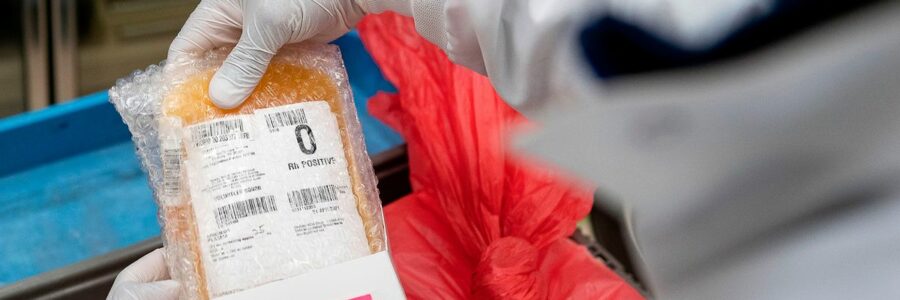
Trump-Touted Plasma Therapy Shows No Benefit, Researchers Say
A large, national study in the U.K. examining convalescent plasma as a therapy for Covid-19 was ended after a finding that the treatment touted by U.S. President Donald Trump doesn’t work.
TheUniversity of Oxford research was part of a clinical trial named Recovery that’s investigating different Covid-19 treatments. The only arm of the study stopped was one probing the effectiveness of a therapy using plasma from people who have recovered from the virus. A monitoring board said on Thursday there was no point in continuing, the university said in a statement.
The decision comes after more than 100,000 Americans have been treated with convalescent plasma after its use was authorized by U.S. regulators on an emergency basis. Trump commented at the time in August that it would “save countless lives.”
“Convalescent plasma has been widely used as a treatment for Covid-19 but to date there has been no convincing evidence of the effect of convalescent plasma on clinical outcomes in patients admitted to hospital with Covid-19,” according to the statement.
The U.S.National Institutes of Health is leading ongoing convalescent plasma research in the U.S., but expectations are modest at best as well.
Read more:A Trump-Touted Covid Therapy Awaits Proof to Back Up His Boasts
Trump and U.S. Food and Drug Administration Commissioner Stephen Hahn held a press conference in August announcing the FDA would authorize use of convalescent plasma on an emergency basis against Covid-19, though evidence of its effectiveness was thin. Trump strongly touted the therapy, while Hahnexaggerated its benefit in remarks he had to walk back shortly after.
Peter Horby, one of the lead researchers on Recovery, said it is still possible some subgroups of patients could benefit from convalescent plasma.
“Whilst the overall result is negative, we need to await the full results before we can understand whether convalescent plasma has any role in particular patient subgroups.,” Horby, professor of emerging infectious diseases in the Nuffield Department of Medicine at the University of Oxford, said in the statement.
Source: Read Full Article